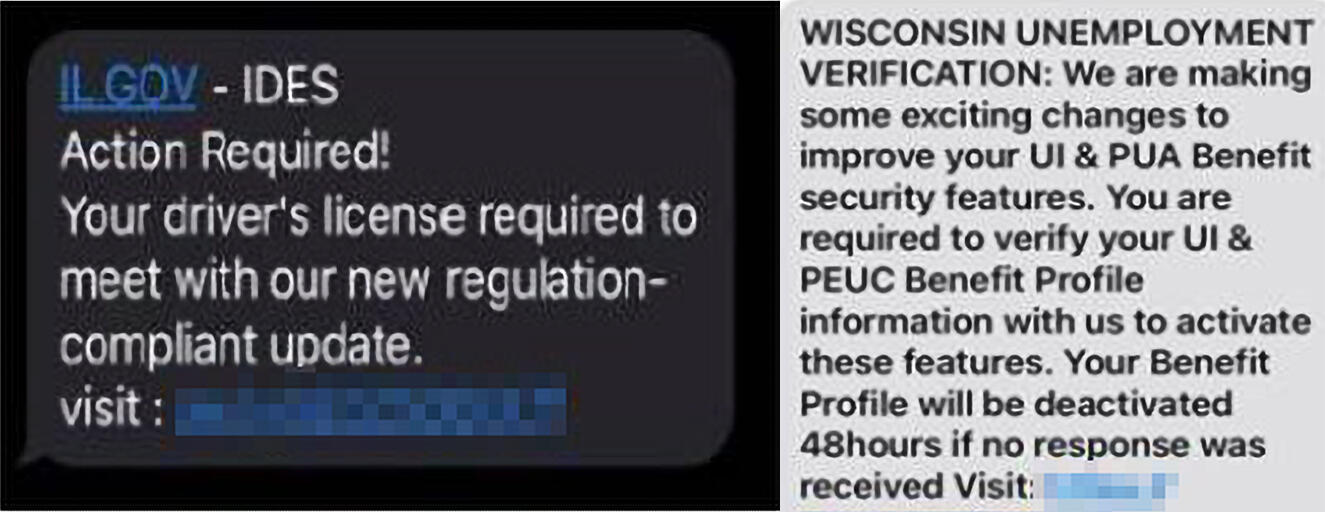The scam messages try to convince you to enter your Social Security number and other personal info at a website masquerading as your state's workforce agency.

Image: iStock/Melpomenem
Scammers are now targeting people who have filed for unemployment insurance through a phishing campaign designed to capture sensitive information. In a warning posted on Wednesday, the FTC warned of a new series of deceptive text messages and emails that lead you to websites spoofing your state's workforce agency.
SEE: Identity theft protection policy (TechRepublic Premium)
The messages try to convince you to click on a link to "make necessary corrections" to your unemployment insurance claim, "verify" your personal information, or "reactivate" your UI benefits account. The resulting website looks like one for an actual workforce agency, which is available in every state in the U.S. to provide help for job seekers, employers, and those looking for unemployment benefits.
The phony site asks you to enter your website account credentials and certain personal information such as your Social Security number and driver's license number. The scammers who successfully obtain such data can use it to file fraudulent unemployment benefits as well as conduct other types of identity theft.

Image: FTC
Scammers are all too happy to target people when they're at their most vulnerable, knowing that they may be more likely to take the bait. That certainly applies to those who are out of work and need unemployment insurance to tide them over.
"As we continue to work our way through the pandemic and associated issues, unemployment insurance has become more and more important to people unable to work when jobs that match their skills are not available," said KnowBe4security awareness advocate Erich Kron. "With the recent rise in cases, due to the Delta variant and other factors, stress levels continue to rise for people impacted. This makes them prime candidates for attacks such as this, which threaten their only source of income."
To protect yourself from this type of scam, the FTC stresses that state agencies do not send emails or messages seeking personal information. If you receive an unsolicited email or text message that appears to be from your state workforce agency, don't respond or click on any links. If you're unsure about the legitimacy of a message, contact your local state workforce agency directly.
Further, anyone looking for information on an unemployment claim should sign in directly at their state's unemployment insurance portal to see if there are any updates.
You can also report a suspicious text or email to the FTC at its Report Fraud site and to the National Center for Disaster Fraud by completing an NCDF Complaint Form or by calling 866-720-5721. If you think you may have already been the victim of such a scam, visit the FTC's Identity Theft site to file a report.

Cybersecurity Insider Newsletter
Strengthen your organization's IT security defenses by keeping abreast of the latest cybersecurity news, solutions, and best practices. Delivered Tuesdays and Thursdays
Sign up todayAlso see
- How to become a cybersecurity pro: A cheat sheet (TechRepublic)
- Social engineering: A cheat sheet for business professionals (free PDF) (TechRepublic)
- Shadow IT policy (TechRepublic Premium)
- Online security 101: Tips for protecting your privacy from hackers and spies (ZDNet)
- Cybersecurity and cyberwar: More must-read coverage (TechRepublic on Flipboard)







 English (US) ·
English (US) ·